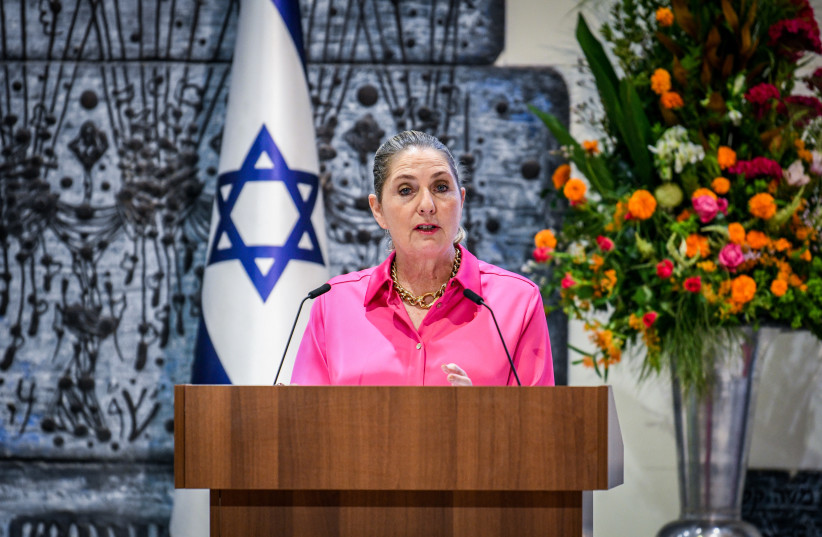Since October 7, President Isaac Herzog and his wife, Michal, have visited wounded soldiers in various hospitals around the country.
As someone who is particularly concerned about the mental health of the nation, Michal Herzog, from the conversations that she has had with reservists, their spouses, and other members of their families, thought it essential to develop a forum dedicated to reservists who are being released from the army.
Reservists return home to a new reality
A forum event on Sunday began with a video of a family dinner that included the reservist who was home on leave and found it difficult to adjust. He kept on trying to eat the kind of meal he would never receive in the field, and people around the table kept arguing and getting up to slap him on the shoulder whenever he tried to put a forkful of food into his mouth.
Eventually, he got up, took the plate with the food still on it, and smashed it on the floor. Then, dressed in his army uniform and upset, he took his gun and said he was going back to the army for 60 days.
In the background of the video was the music for the song “How good it is to come home.”
The underlying message was that it’s not always so good because all of a sudden, the reservist’s life is again topsy turvy with a changed environment and a different set of challenges.

People who haven’t been called up are often insensitive to the reservists’ worries about work or university studies or both, not to mention mortgage payments.
Very often, when the reservist is away on duty, the spouse is the family breadwinner. The spouse is often fearful about what could happen to the reservist, and this fear may lead to tensions when the reservist comes home.
Nothing is like either partner imagined it would be.
These and other issues were discussed by Michal Herzog, Chief Reserve Officer Brig.-Gen. Benny Ben Ari, Prof. Rivkah Tuval Mashiach, the chief psychologist at Natal, the Israel Trauma and Resilience Center; Guy Rotman, a reserve officer, who got married a year ago, and who returned home after more than two months in Gaza; attorney Vardit Damari Madar, the CEO of Kol Zchut, an organization that advises reservists and their families of their rights, and which since October 7 has had 1,300,000 queries; and a group of four wives of reservists, who participated in a panel discussion.
Noting that all present shared a common concern, Herzog said that this was a vital gathering that she had been thinking about for weeks, about how to find the best way to relate to reservists who had been discharged and were coming home.
Different reactions when returning home
Some have very mixed feelings. On the one hand, they miss their families, but on the other, they suffer the pain of loss of comrades in arms, she said.
People come home with full hearts, but can’t take their minds off the battlefield and the people they’ve left behind, she continued, implying that some of these guilt feelings arise because they’ve left others to continue the job.
“How can one concentrate on work or studies when the mind is elsewhere?” Herzog queried. “We have to be there for them and their families,” she insisted. “We have to give them tools and support.”
Alluding to the fears and anxieties on the battleground, she said “It doesn’t stop when a door closes, or in the joy of homecoming. It keeps coming back.”
In wartime, said Ben Ari, “you need a strong reserve corps to protect families and to defend the nation.” At the same time, he continued, it is essential to help the families and to help the reservists to once again find their places in a work environment.
Rotman lost six comrades in arms and spoke of the impact felt by such losses. There’s also the problem of more than one family member being caught up in the war. Both he and his younger brother were in the same unit – a factor that weighed heavily on their parents.
While most of the men in his unit could not think of anything other than returning home, once they got home, they missed the army. “Working together shoulder-to-shoulder not just a slogan,” said Rotman. “We are together in difficult conditions.”
Tuval Mashiach warned of the significance of watching out for signs of trauma, in order to be able to provide suitable therapies as soon as possible, but he cautioned that someone experiencing trauma can be treated only if they want to be treated.
Though each of the panelists faced individual challenges, there was consensus that what they all had in common was uncertainty.
